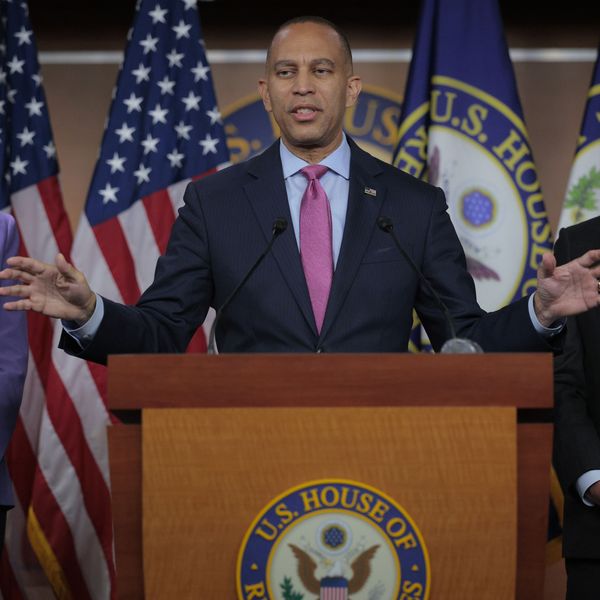Driven by the United States, global demand for food-based biofuels such as corn ethanol is unsustainable, threatening the food security of some of the world's poorest people and endangering already strained land and water resources, according to a new research published this week.
"Mandating Hunger: The Impacts of Global Biofuels Mandates and Targets" (pdf) was issued Tuesday by ActionAid USA, an international non-profit working to end poverty around the world. The study charges that "[b]y creating an inflexible and growing demand, mandates drive up the cost and increase the volatility of food prices."
Government mandates to increase or maintain levels of biofuel blends in transportation fuel, with the U.S. Renewable Fuel Standard and the E.U. Renewable Energy Directive being the most prominent examples, encourage biofuel production and consumption worldwide. The United States and the European Union are projected to account for at least 60 percent of global biofuel consumption in 2025.
"Farmers in poor communities around the world are being kicked off their land to produce fuel for our cars and trucks. No one should go hungry to fill our gas tanks."
--Kelly Stone, ActionAid USA
Furthermore, states the report, "Demand for biofuels is also associated with land grabs in developing countries, where smallholder farmers growing food for their families are forced off their land to make way for energy crops for export."
In Guatemala, for instance, subsistence farmers are being forced to give up cultivation of multiple food crops for local consumption in order to cultivate just one crop that will likely be exported and used for fuel instead of food. Monoculture crops such as sugarcane or palm--both used as feedstocks for biofuels production--now take up 14 percent of the country's land, while small land holders use only 12 percent.
"In a country where half of children under the age of five are malnourished, more land is devoted to export crops than sustenance farming," reads the report.
Kelly Stone, biofuels policy analyst at ActionAid, painted a stark picture: "Farmers in poor communities around the world are being kicked off their land to produce fuel for our cars and trucks," she said. "No one should go hungry to fill our gas tanks."
The ActionAid report was adapted from a recent working paper authored by Timothy Wise and Emily Cole of the Global Development and Environment Institute at Tufts University in Massachusetts.
Their analysis "suggests the need for governments to cease the implementation and expansion of current food-based biofuels consumption mandates and to forgo the creation of new mandates," which they say prop up demand. They also recommend eliminating incentives for biofuels that impact the fuel supply.
Such incentives, of course, are the bread and butter of Midwestern corn producers, which explains why attempts by the federal government to reduce how much ethanol must be blended into the country's motor-fuel supply are vehemently opposed by members of Congress from that region.
"Mandates must be scaled back. Otherwise, governments are mandating not just biofuel consumption but hunger and unsustainable resource use."
--Tim Wise & Emily Cole, Global Development and Environment Institute at Tufts University
"Regulatory and legislative efforts to weaken the Renewable Fuel Standard are misguided and fail to acknowledge the success of renewable fuels," U.S. Rep. Dave Loebsack (D-Iowa) reportedly said at a biofuels summit in Washington, D.C.
Wise and Cole point out that the U.S. not only consumes the most biofuels, but it uses mostly corn, the source that provides "the fewest environmental benefits and most directly competes with food and feed markets."
"Mandates must be scaled back," they declare. "Otherwise, governments are mandating not just biofuel consumption but hunger and unsustainable resource use."


